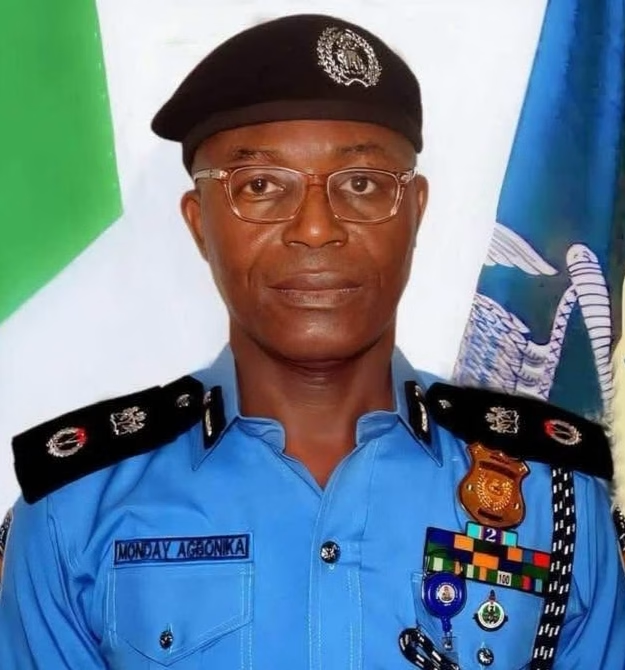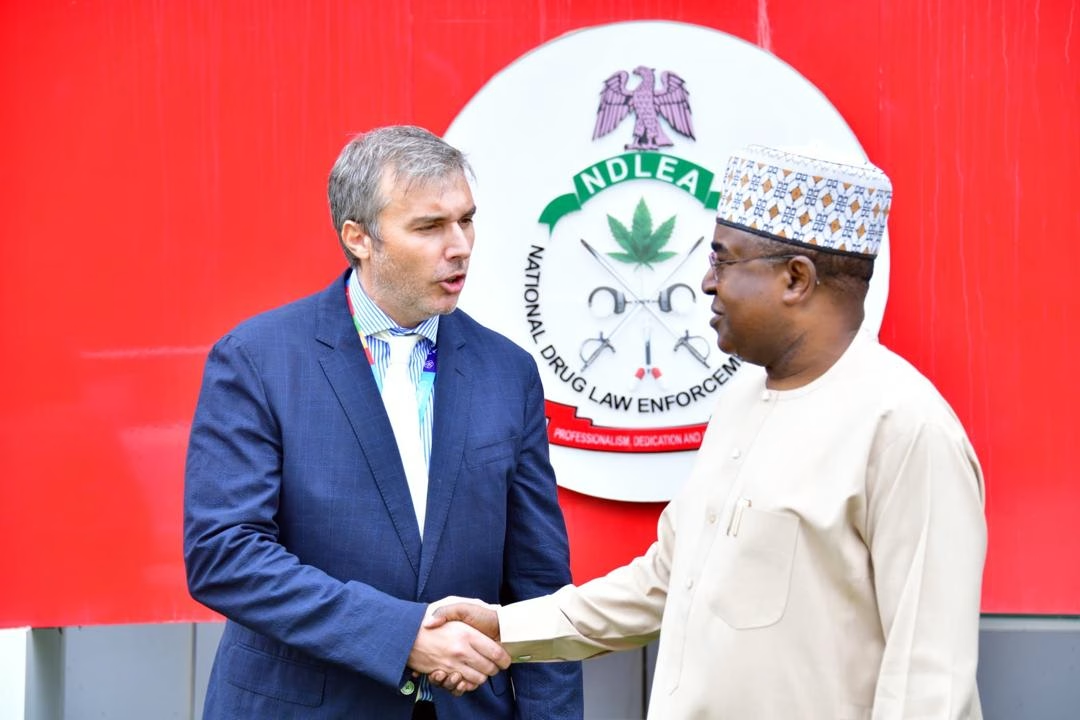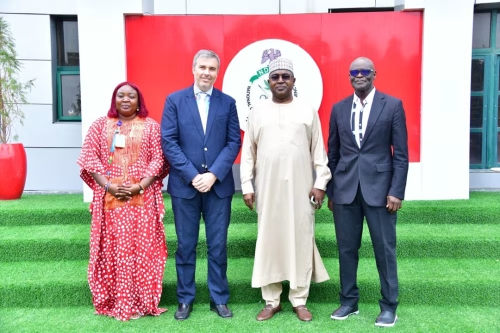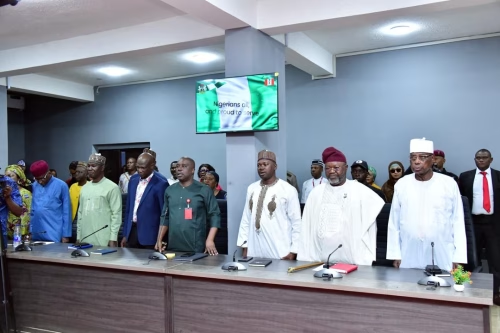By Tunde Olusunle
An essay of mine, Obasanjo, Atiku and Tinubu at a Time Like this published on June 1, 2025, canvassed that President Bola Tinubu took time off his Eid-el-Kabir break in Lagos, to visit troubled spots across the country. It sought to pitch the response time of former Nigerian leaders, notably President Olusegun Obasanjo and Vice President Atiku Abubakar, during periods of concerning tragedies, against that of President Bola Tinubu, following recent grievous national calamities. Much as the Air India plane crash of Sunday June 15, 2025, which claimed the lives of 241 passengers occurred two days after the most recent bloodletting in Benue State, the reaction time of the Indian Prime Minister to the tragedy, Narendra Modi, was swift and noteworthy. He was physically on the site of the devastation at Ahmedabad, within hours, which also claimed 29 lives on the ground, which brought the casualty figures to 270. The 74 year-old Indian leader proceeded thereafter to the hospital bed of Vishwashkumar Ramesh, the sole survivor of the tragedy.
President Tinubu signed off from Abuja on Tuesday May 27, 2025 for a two-week period, to attend official functions in Nigeria’s former capital and to observe the religious holiday in his home state, Lagos. This was at a time parts of the country, notably Benue, Plateau, Borno, Kwara were in the throes of various degrees of destabilisation and discombobulation, fuelled by a worrying resurgence of banditry, insurgency and terrorism. The President could always come back to receive his guests during the period and fete them to barbecued-hospitality in Lagos, after assuaging his constituents in these troubled spots. His personal appearance would reassure residents in each troubled entity and flashpoint. He would, during the envisioned visits, renew his charge to the intelligence, security and military apparachik containing these troubled areas, in his capacity as Commander-in-Chief, to be more decisive and ruthless in apprehending and punishing perpetrators.
Demon-crazed, vile and vicious assailants in overwhelming numbers, invaded Daudu and Yelewata communities in Guma local government area in Benue State, the night of Friday June 13, 2025, through the early hours of Saturday June 14, 2025. Homes of locals were targeted, doused with petrol and set ablaze. An estimated 200 people were so incinerated by the rampaging outlaws. Many Nigerians anticipated prompt and decisive action from the President. Their disappointments were writ large on their foreheads, however, seeing on the front covers of some respected national dailies the very next morning photographs featuring a smiling Tinubu receiving in audience some former state governors. They were chaperoned by Nyesom Wike, Minister of the Federal Capital Territory Administration, (FCTA), the self-appointed chief campaigner for Tinubu’s second term. Spontaneous national outrage compelled the President to announce at a public function in Abuja, Monday June 16, 2025, that he would visit Benue on Wednesday June 18, 2025.
Hyacinth Alia, the Catholic Priest who is Governor of Benue State, was evidently overwhelmed by the imminent visit of the President. The pervading air of weeping and wailing which characterised the recent onslaught on Alia’s people, required that they be adorned with sackcloth as they continued to mourn their kinsmen. An official correspondence from one of Alia’s aides, however, enjoined support groups to be uniformly dressed in aso ebi which suggested that the President was attending a campaign rally in the state. Overgrown vegetation lining the driveway into Government House, Makurdi, was hurriedly weeded under nightfall, a probable attestation to previous scant attention to environmental cleanliness by the Alia government. Precocious school children were herded to line the streets, to welcome the President, on a day when heavy downpours precipitated flooding in parts of the state.
Tinubu’s first port of call after disembarking from the presidential airplane on Wednesday June 18, 2025, was the Benue State University Teaching Hospital, (BSUTH). Injured survivors of the recent attacks were herded there in the aftermath of the recent devastation, to join casualties from previous incidents. Together, they are being treated in the facility, the most comprehensive medical complex in Benue State. In recent days, authorities of the hospital have launched vociferous advocacies for freewill blood donations to enable it manage its unusually high patients needing urgent transfusions. Wearing a face mask like his hosts and members of his delegation, Tinubu coursed through the rows of emergency wards. He acquainted himself with the vagaries of injuries and lacerations inflicted on hapless and helpless country folk by intentionally sadist assailants. He saw with his own eyes that the unceasing cries and complaints echoing from the Benue valley, were well-founded and inevitable.
The banquet hall of Government House, Makurdi, was Tinubu’s next destination. He had a townhall interface with top government functionaries; the political class; traditional rulers, and the intelligence and security top brass. Paramount ruler of the Tiv nation, the Tor Tiv, James Ortese Iorzua Ayatse, put the issues surrounding the relentless onslaught on Benue State across sociocultural diversities, in proper perspective. Ayatse a distinguished Biochemist who attained the rank of substantive Professor at 37, and served as Vice Chancellor of two federal universities in Makurdi and Dutsin-Ma, in Benue and Katsina states, demonstrated the stuff of the well grounded scholar that he is. Ayatse frontally addressed the recurring “misinformation and mischaracterisation” of the Benue plague, arguing that “land grabbing is at the core of the decades long conflict.”
The Tor Tiv described the killings in Benue State as a “calculated, well-planned, full-scale genocidal invasion and land-grabbing campaign by herder-terrorists” which has persisted for decades. He dismissed claims that the killings arose from clashes between herders and farmers, describing such suggestions as misleading and misinformation. Ayatse observed: “We have grave concerns about the misinformation and misrepresentation of the security crisis in Benue State. It is not herders-farmers clashes, it is not communal clashes, it is not reprisal attacks or skirmishes. It is this misinformation that has culminated in suggestions such as “remain tolerant,” “negotiate for peace,” “learn to live with your neighbours.” Wrong diagnosis, the Tor Tiv noted, will always lead to wrong treatment. His words: “We are dealing with something far more sinister, than we imagine. It is not about learning to live with your neighbours, it is about dealing with a war situation.”
The Tor Tiv received resounding applause from attendees at the event, who concurred with the succinct, laconic manner he captured the facts of the festering Benue State security challenge, before President Tinubu. The audience included the Secretary to the Government of the Federation, (SGF), George Akume, who was Governor of Benue State between 1999 and 2007. There were also Governors Abdulrahman Abdulrasaq; Caleb Muftwang; Abdullahi Sule; Ahmed Ododo, from the North Central states of Kwara, Plateau, Nasarawa and Kogi. Governors Hope Uzodinma and Lucky Aiyedatiwa of Imo and Ondo states were also present in solidarity with their troubled Benue counterpart. The National Security Adviser, (NSA), Nuhu Ribadu, was present.
The Chief of Defence Staff, (CDS), General Christopher Musa, led other Service Chiefs, notably Olufemi Oluyede, Chief of Army Staff, (COAS); Hassan Bala Abubakar, Chief of Air Staff, (CAS), to the stakeholders meeting. Kayode Egbetokun, the Inspector-General of Police, (IGP), had indeed been in Benue State, days before the President. Federal government functionaries of Benue State origin in attendance included the Minister for Water Resources, Joseph Utsev, a Professor; Executive Secretary of the Tertiary Education Trust Fund, (TETFUND), Sonny Togo Echono; and his counterpart in the Nigerian Shippers’ Council, (NSC), Akutah Pius Ukeyima. Senator Representing Benue North West, Tartenger Titus Zam and the Member Representing Makurdi/Guma federal constituency in the House of Representatives, Dickson Dominic Tarkighir, were equally in attendance.
A better-informed President Tinubu conveyed the condolences of his administration to the government and people of Benue State. He noted he would have been more delighted to be in Benue State to commission projects and infrastructure developed for the collective benefit of the people of the state, than the lachrymal circumstances which compelled his coming. He noted that on no account should cattle be equated with humans, such that humans have to be killed for livestock to be fed. The President called out the IGP, asking him why arrests had not been made. He requested increased collaboration and the intensification of surveillance and intelligence gathering by the Department of State Services, (DSS); the National Intelligence Agency, (NIA) and the Defence Intelligence Agency, (DIA), in apprehending the criminal perpetrators of the Yelewata and Daudu pogrom. The President unwittingly committed a gaffe when he said he aborted his intended assessment visit to Yelewata because of the torrential rain and the state of the road. How about the little children who lined up the streets in the deluge, to receive him? Whose responsibility is it to fix national highways, Yelewata being on the critical Lafia-Makurdi- Otukpo-Enugu road, which links the North Central to the South East and South South?
Tinubu admonished the CDS on the imperative for increased vigilance and synergy with communities to stem needless human hemorrhaging. In an implied critique of Governor Alia, President Tinubu advised him to work with his predecessors, Benue elders, royals, federal government officials and non-indigenes, to share views and opinions towards engendering lasting peace and security. There have been reports of estrangement between Alia and a top federal government official, one of his predecessor, who was substantially instrumental to Alia’s emergence as Governor. The President equally requested the Ministers of Agriculture and Food Security, and Livestock Development, to promptly liaise with Governor Alia, towards the establishment of modern ranches for better animal husbandry.
Let’s hope President Tinubu institutes a multilevel system for filtering authentic intel, different from the monolithic sources of his appointees. The Benue incident has just shown that so much can be kept away from the ears of any leader who does not intentionally cultivate backup information and intelligence sources. This approach served former President Olusegun Obasanjo very well. Let’s hope conversations around the Benue plague will yield suggestions to the practical mitigation of subsisting security problems of the state. Let’s hope these engagements will be broad enough to equally throw up panaceas for other variously troubled parts of the country. Let’s hope the defence and security sector will conscientiously commit its ever bloating budgetary allocations to the pointed procurement of relevant equipment, and the prompt and adequate settlement of troops on the frontlines with their dues and entitlements. Let’s hope technology will henceforth be deployed across theatres of bloodshed in various parts of the country, to nip recurrences that we may have a safe and harmonious nation we all will be proud of.
Tunde Olusunle, PhD, Fellow of the Association of Nigerian Authors, (FANA), is an Adjunct Professor of Creative Writing at the University of Abuja



















